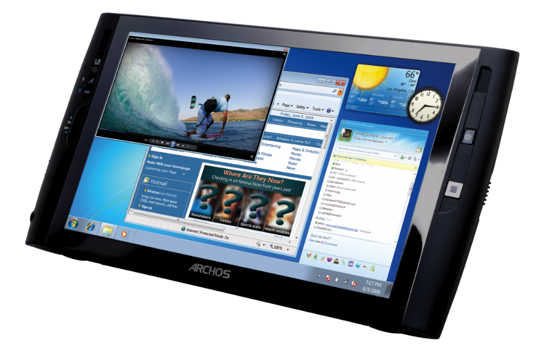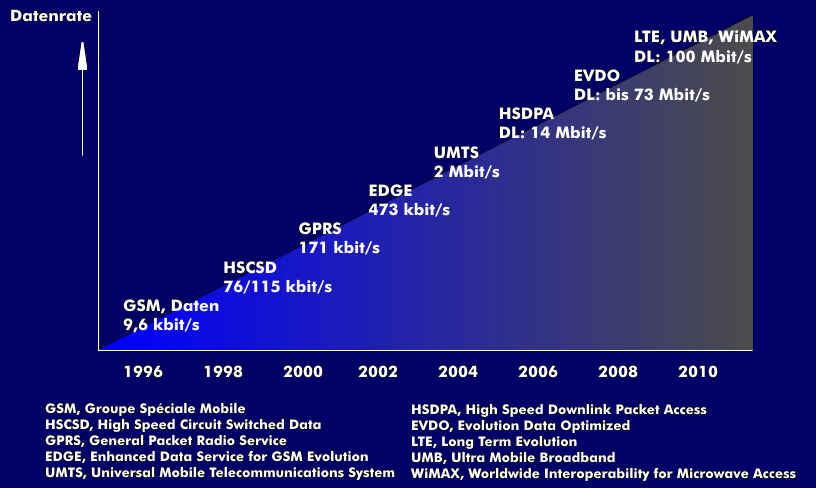mobile Internet
The mobility of electronic communications devices is increasingly being translated into Internet applications. Highly intelligent smartphones, tablets and notebooks equipped with many services and Web browsers have contributed to this development, as have the fast mobile networks equipped with high transmission rates and, last but not least, the much more attractive usage rates. This is referred to as mobile Internet.
Years ago, the data rates ofGSM networks were not sufficient to use simple Internet applications such as surfing between websites without long waiting times. This has changed dramatically with mobile broadband technologies, as evidenced in no small part by the multiplication of data rates in modern mobile networks. The newer mobile communications technologies UMTS, High Speed Packet Access Plus( HSPA+), High Speed Downlink Packet Access( HSDPA) and above all Long Term Evolution( LTE) are many times faster than GSM technology. If we assume a data rate of 2 Mbit/s for UMTS and up to 10 Mbit/s for HSDPA, Long Term Evolution (LTE), the first pilot projects of which were realized in 2010, achieves data rates of a hundred megabits per second when the maximum bandwidth is utilized.
Another approach to improving bandwidth requirements for mobile Internet is offered by reducing the size of radio cells. Small cells, which can be microcells, picocells, femtocells or WiFi cells, improve the network coverage of existing macrocells and gain additional transmission capacity. Multiple Small Cells can be installed in each macrocell, eliminating interference from buildings in urban areas. The installed Small Cells work together as a cluster and are more flexible than larger macrocells.
Mobile communications technologies and cluster cells are increasing the data rates for mobile Internet in which people can surf and communicate, participate in social networks, watch mobile Internet TV or listen to Internet radio.


